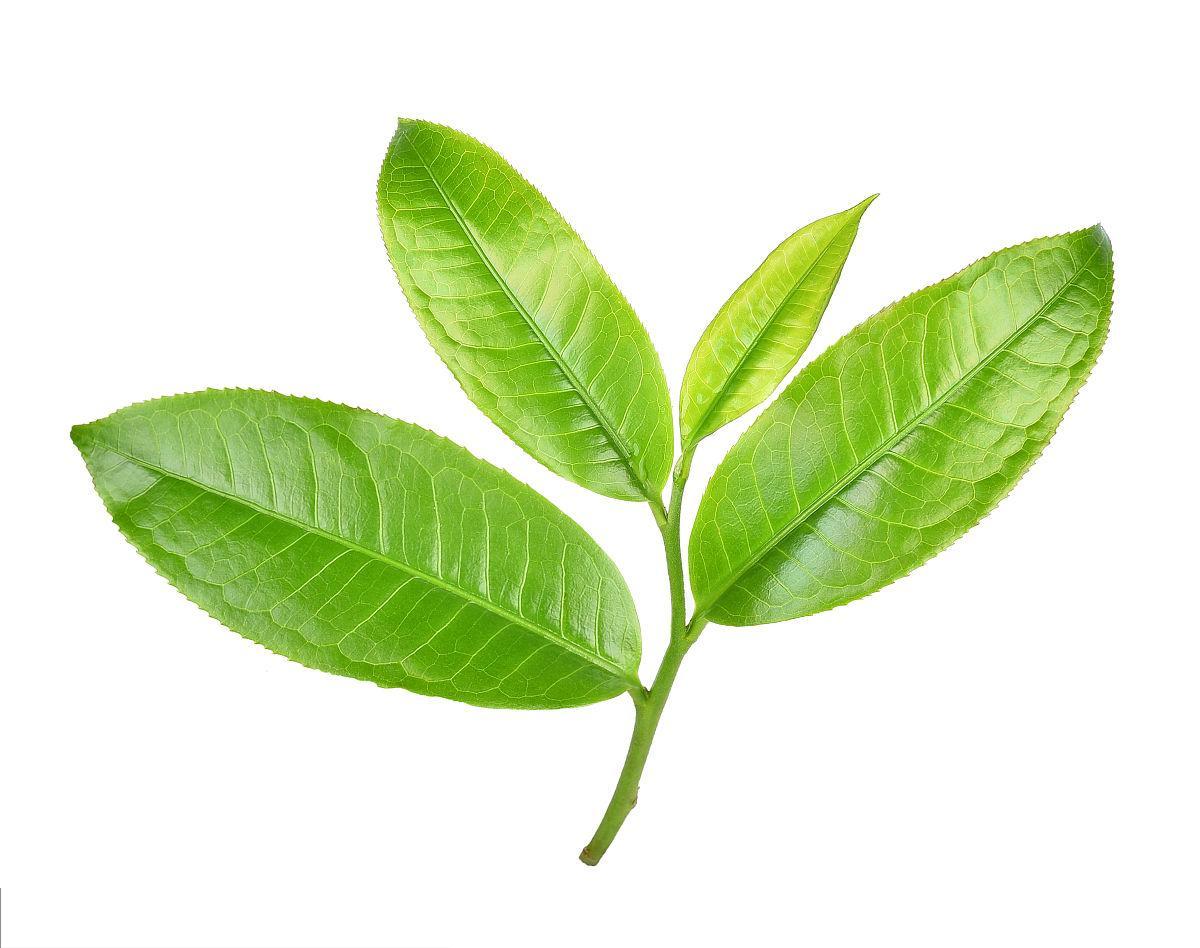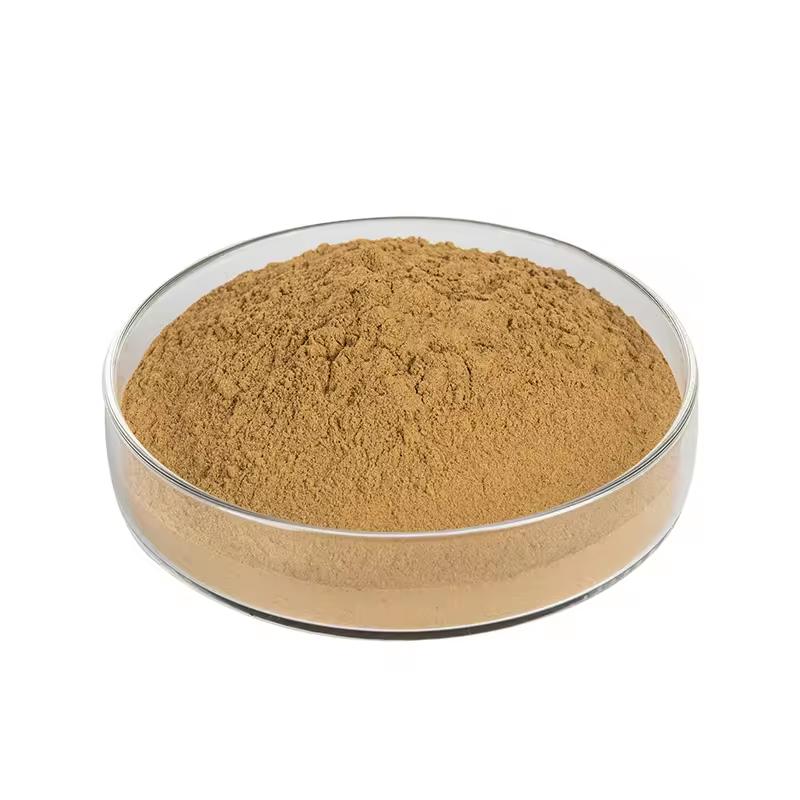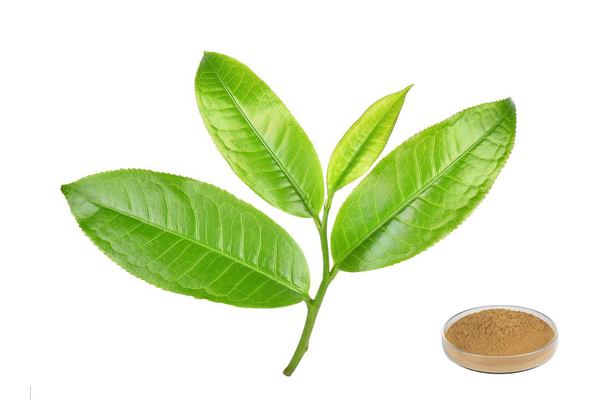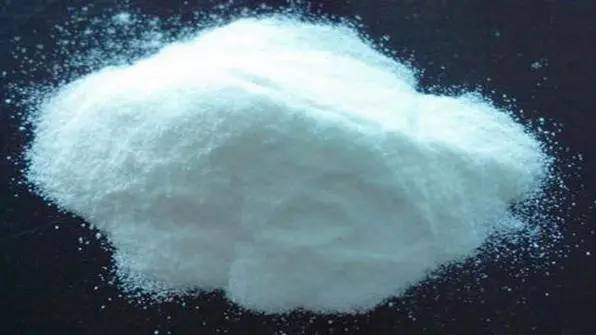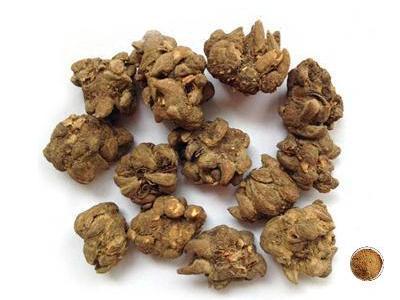Green Tea Extract 40% L Theanine Powder
Source:Green Tea Leaf
Active Ingredients:L-theanine
Specification:40%
Testing Method:HPLC
Appearance:Brown Fine Powder
Pesticide Residue:Comply with (EC) No 396/2005 Standard
- Description
- Data Sheet
- Certificate
-
What is Green Tea Extract L Theanine Powder ?
L-theanine is a characteristic amino acid of tea, with the chemical formula C7H14N2O3, accounting for 1-2% by weight in dry tea. L-theanine was first isolated from green tea in 1950. In the presence of more than twenty kinds of amino acids in tea, theanine accounts for about 50% to 60% of the total amino acids in tea; it has been found that, except for the presence of trace amounts of theanine in tea plums, mushrooms, oil tea, and other plants, theanine has not yet been found in other plants. Theanine is an amide compound, chemically named: N-ethyl-L-glutamine.
Natural theanine is L-type, pure white needle-like crystals, melting point 217 ° C ~ 218 ° C, specific optical rotation [α] D20 = 0.7 °, extremely soluble in water, insoluble in ethanol and organic solvents such as ether, aqueous solution is slightly acidic, with a caramel aroma and similar to the MSG fresh and crisp flavor, the threshold of taste is 0.06%.
Green Spring Technology supplies natural Green Tea Extract 40% L Theanine Powder, which is produced by using advanced membrane separation and membrane concentration equipment, with the aroma of natural green tea, good color, clarified solution after water solubility, no precipitation, suitable for beverage addition.
Established in 2000, Green Spring Technology is a leading biotechnology company in China, dedicated to the research and development of supplying natural, safe, and organic plant extracts. We produce according to ISO, HACCP, and other quality standards, and comply with EU EC396, EU 2023/915, and the highest solvent residue standards. Greenspring has 7 certificates, and 7 patents and has been awarded Halal, Kosher, COSMOS, BRC, IFS, FDA, ISO, and many other certificates. Authoritative third-party test reports are available.
Specification:
Product Name
Green Tea Extract
Latin Name
Camellia Sinensis
CAS No.
3081-61-6
Source
Green Tea Leaf
Active Ingredients
L-theanine
Specification
40%
Testing Method
HPLC
Appearance
Brown Fine Powder
Pesticide Residue
Comply with (EC) No 396/2005 Standard
Regulation:
It conforms to EU regulations.
Looking for a Quotation?Benefits:
Sedative Function
Tea contains more caffeine with a stimulating effect, but people feel calm and relaxed when drinking tea, not like drinking coffee is excited and hyperactive. In addition to the caffeine and other substances complex, its absorption is slow, which is mainly the theanine sedative effect. Research has proved that theanine has an antagonistic effect on caffeine excitement, when the amount of theanine up to 1740 mg/kg, can significantly inhibit caffeine-induced excitation of the nervous system. Recently, some scholars have used electroencephalograph evaluation method to further determine that theanine and caffeine in almost the same molar concentration, caffeine stimulation can be antagonistic.
Lowering Blood Pressure
The regulation of blood pressure is achieved mainly through the increase or decrease of catecholamines and 5-hydroxytryptamine in the central and unperipheral nervous system. The administration of murine theanine can reduce the level of 5-hydroxytryptamine, resulting in a 5-hydroxytryptamine. synthesis in the brain is reduced as well as increasing its breakdown in the brain. When spontaneously hypertensive rats (SHR) were given different doses of theanine blood pressure decreased in a dose-reflective relationship, with a significant decrease in blood pressure observed in the high-dose group. However, even the highest dose of theanine (2000 MG/KG) did not change the blood pressure of WISTAR rats. Glutamic acid, which is structurally similar to theanine, was not found to have a blood pressure-lowering effect.
Affecting Neurotransmitters Changes in the Brain
Dopamine (DA), known in English as dopamine, is a central neurotransmitter that makes people excited and happy. Theanine causes a significant increase in the mitochondrial neurotransmitter dopamine in brain cells, which is the precursor of adrenaline and noradrenaline, and is an important substance for conveying the level of excitement of nerve cells in the brain, and its release greatly affects a person's mood. Changes in neurotransmitters also affect learning ability, memory, and so on. After taking theanine for 3-4 months, rats have improved learning ability, can grasp the essentials in a shorter period, and have a stronger memory for dangerous environments than the control group. Therefore, theanine can also improve learning ability and memory by regulating neurotransmitters.
Enhances Immunity
According to research in the United States, tea can enhance resistance, which may be related to theanine. Professor Jack Bukowski's research group at Harvard Medical School, through tests on volunteers, proved that theanine can enhance the human immune system by regulating gamma-delta T immune cells and resist the invasion of disease-causing microorganisms, such as viruses, bacteria, and fungi, and it can even increase the body's resistance to prevent diseases by five times. Scientists predict that theanine may one day be used to develop disease-fighting drugs.
Applications:
In the Food Field:
Theanine is easily soluble in water and can be added to baked and frozen snacks, etc. Research has confirmed that it can be added to sweets and various beverages to obtain a good calming effect; it can be added to food as a functional ingredient to develop functional food to relieve nervousness and benefit the brain. Research has confirmed that theanine can be added to sweets and various beverages to obtain a good sedative effect. In Japan, theanine has been widely used in chocolates, jellies, puddings, chewing gums, health teas, and various refreshing drinks.
Theanine is the main component of the fresh and refreshing taste of tea, theanine can interact with sugar to form volatile aroma components, but also can alleviate the bitterness of caffeine and the bitter and astringent flavour of tea polyphenols, adding a certain amount of theanine in the production of tea beverages can significantly improve the quality and flavour of tea beverages. Theanine can not only be used as a modifier of the flavour of green tea but can also inhibit the bitter and spicy flavour in other foods. For example, cocoa drinks and wheat tea have a unique bitter or spicy taste, adding sweeteners will have an unpleasant taste, such as 0.1 % of L-theanine instead of sweeteners, the results show that the beverage flavour greatly improved.
-
Download
Green Tea Extract 40% L Theanine Powder COA


 English
English French
French Spanish
Spanish Russian
Russian Korean
Korean Japanese
Japanese



